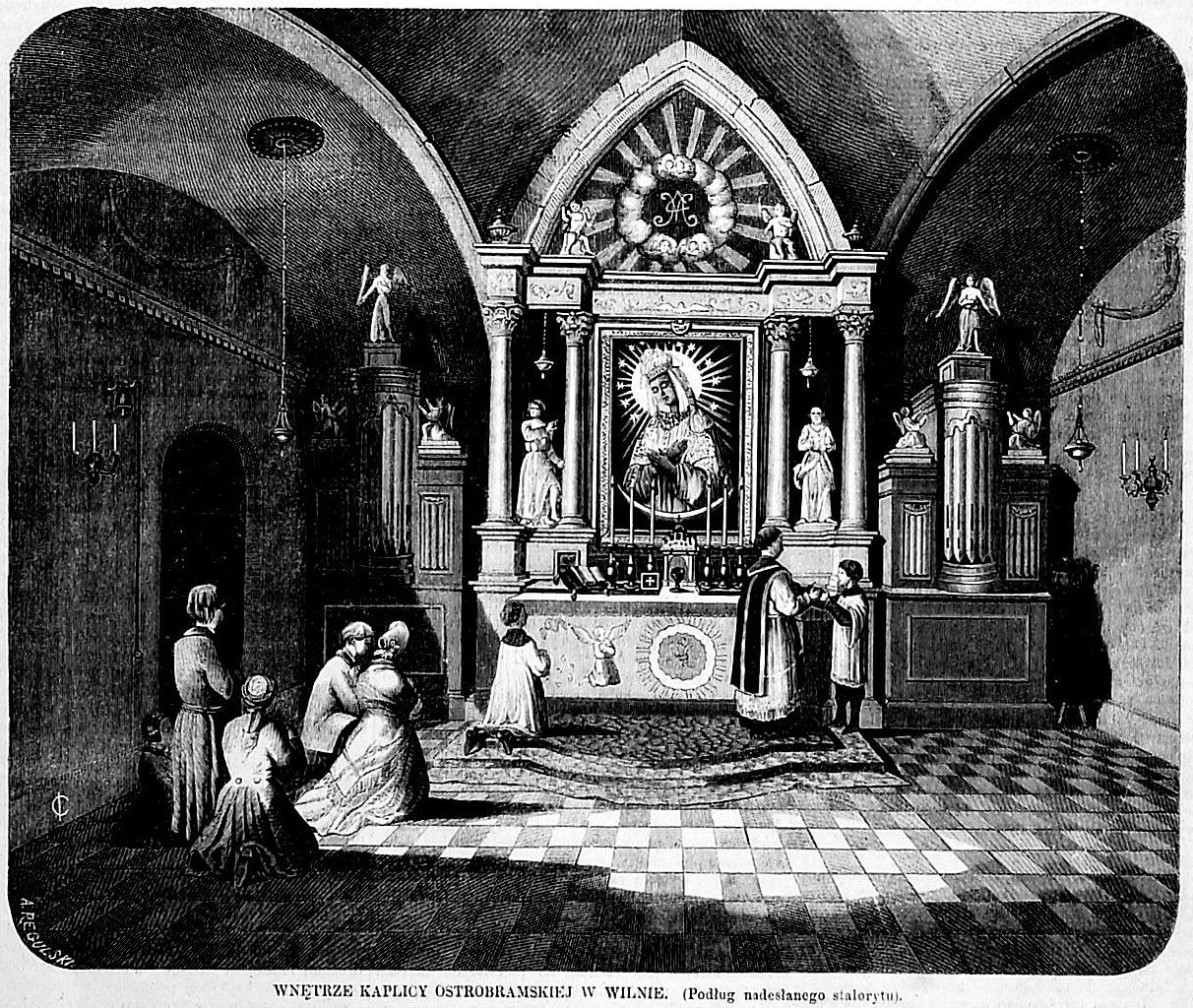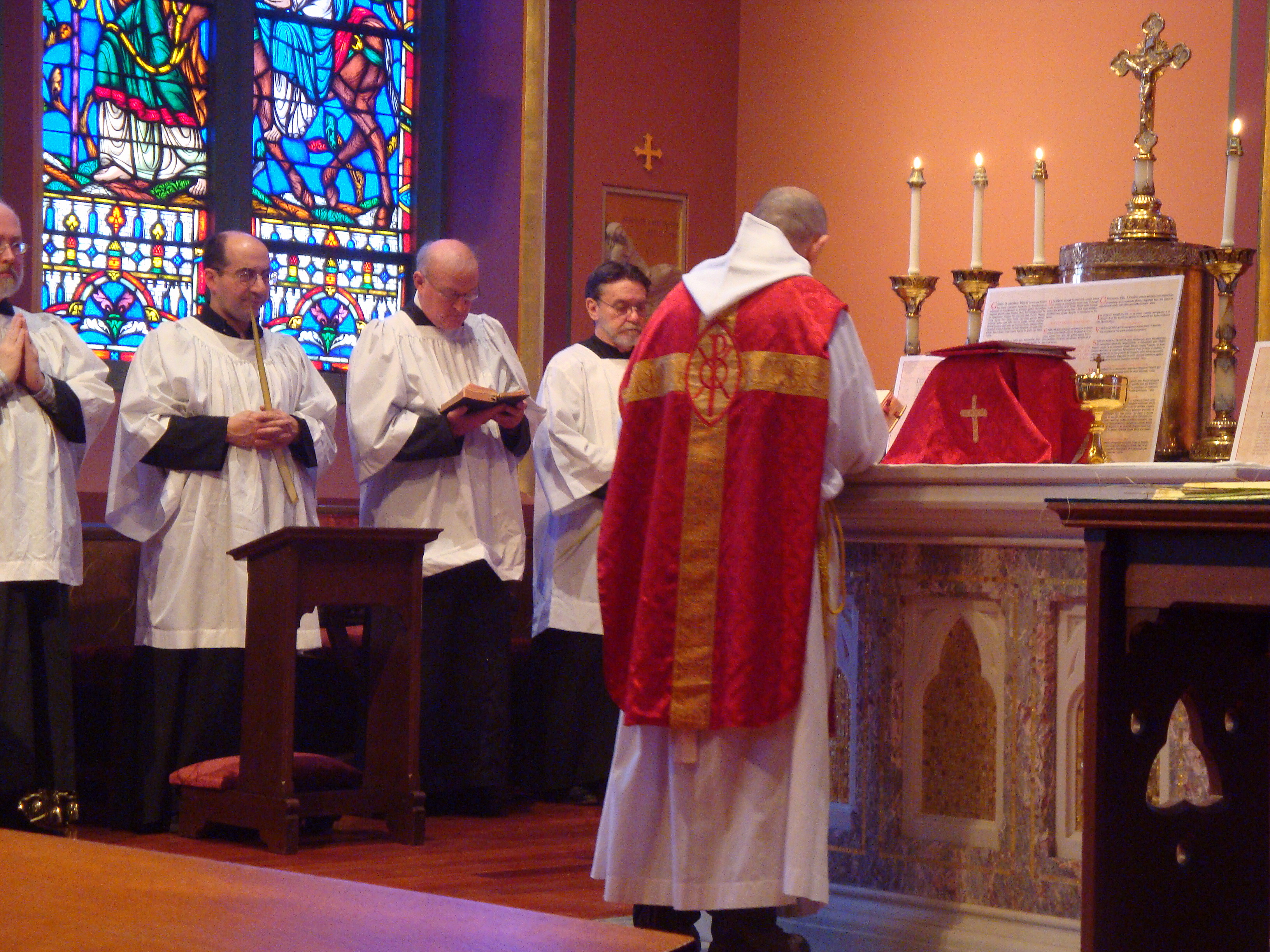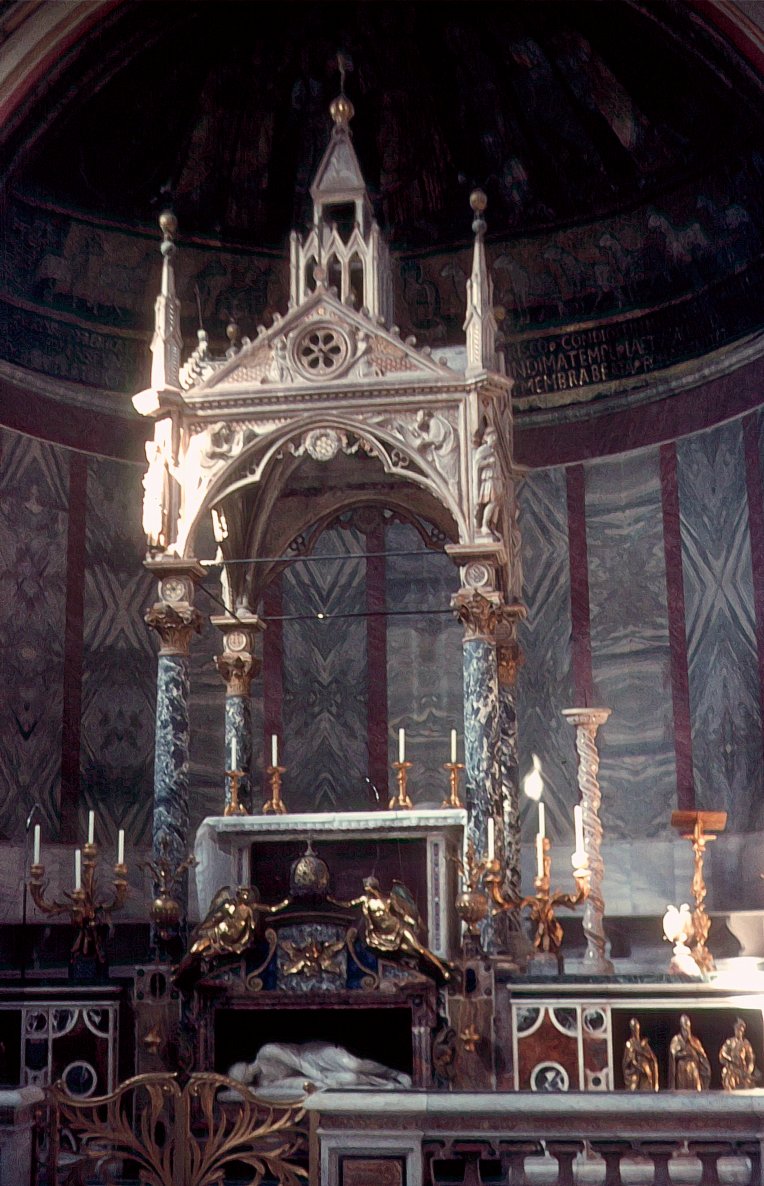|
Summorum Pontificum
(English: 'Of the Supreme Pontiffs') is an Ecclesiastical letter#Letters of the popes in modern times, apostolic letter of Pope Benedict XVI, issued on 7 July 2007. This letter specifies the circumstances in which Priesthood in the Catholic Church, priests of the Latin Church could celebrate Mass in the Catholic Church, Mass according to the "1962 missal, Missal promulgated by Blessed John XXIII in 1962" (the last edition of the Roman Missal, in the form known as the Tridentine Mass) and administer most of the Sacraments of the Catholic Church, sacraments in the form used before Liturgical reforms of Pope Paul VI, the liturgical reforms that followed the Second Vatican Council. It granted greater freedom for priests to use the Tridentine liturgy in its 1962 form, stating that all priests of the Latin Church may freely celebrate Mass with the 1962 Missal privately. It also provided that "in parishes where a group of the faithful attached to the previous liturgical tradition stably ... [...More Info...] [...Related Items...] OR: [Wikipedia] [Google] [Baidu] |
Tridentine Mass
The Tridentine Mass, also known as the Extraordinary Form of the Roman Rite or ''usus antiquior'' (), Vetus Ordo or the Traditional Latin Mass (TLM) or the Traditional Rite, is the liturgy in the Roman Missal of the Catholic Church codified in 1570 and published thereafter with amendments up to 1962. Celebrated almost exclusively in Ecclesiastical Latin, it was the most widely used Eucharistic liturgy in the world from its issuance in 1570 until its replacement by the Mass of Paul VI promulgated in 1969 (with the revised Roman Missal appearing in 1970.) "Tridentine" is derived from the Latin ''Tridentinus'', "related to the city of Trent", where the Council of Trent was held at the height of the Counter-Reformation. In response to a decision of that council, Pope Pius V promulgated the 1570 Roman Missal, making it mandatory throughout the Latin Church, except in places and religious orders with rites or uses from before 1370. Permissions for celebrating the Tridentine Mass ... [...More Info...] [...Related Items...] OR: [Wikipedia] [Google] [Baidu] |
Reform Of The Roman Breviary By Pope Pius X
The reform of the Roman Breviary by Pope Pius X was promulgated by that Pope with the apostolic constitution '' Divino afflatu'' of 1 November 1911. The Roman Breviary is the title of the book obligatorily used for celebrating the Roman Rite Divine Office from the revision of Pope Pius V (apostolic constitution '' Quod a nobis'', 9 July 1568) to that by Pope Paul VI (apostolic constitution '' Laudis canticum'', 1 November 1970). Changes A minor matter was the printing in a separate section, called the Ordinary, of those parts of the Psalter that were to be recited frequently, perhaps several times in the same day, such as the invitatory, hymns for the seasons, blessings, absolutions, chapters, suffrages, the Lord's Prayer, Benedictus, Magnificat, Te Deum, etc.{{Cite web , title=CATHOLIC ENCYCLOPEDIA: Reform of the Roman Breviary , url=https://www.newadvent.org/cathen/16013a.htm , access-date=2023-06-25 , website=www.newadvent.org Much more radical was a completely new arr ... [...More Info...] [...Related Items...] OR: [Wikipedia] [Google] [Baidu] |
Marcel Lefebvre
Marcel François Marie Joseph Lefebvre (29 November 1905 – 25 March 1991) was a Catholic Church in France, French Catholic prelate who served as Roman Catholic Archdiocese of Dakar, Archbishop of Dakar from 1955 to 1962. He was a major influence in modern traditionalist Catholicism, founding in 1970 the Society of Saint Pius X (SSPX) to train traditionalist Seminary, seminarians. In 1988, Pope John Paul II declared that Lefebvre had been Latae sententiae and ferendae sententiae#Latae sententiae sanctions, automatically excommunicated for Écône consecrations, consecrating four bishops that year without permission and despite the pope's express prohibition. Ordained a Secular clergy, diocesan priest in 1929, Lefebvre joined the Congregation of the Holy Spirit, Holy Ghost Fathers for missionary work and was assigned to teach at a seminary in Gabon in 1932. In 1947, he was appointed Vicar Apostolic of Dakar, and the next year as the apostolic nuncio to French West Africa. Upo ... [...More Info...] [...Related Items...] OR: [Wikipedia] [Google] [Baidu] |
Traditionalist Catholics
Traditionalist Catholicism is a movement that emphasizes beliefs, practices, customs, traditions, liturgical forms, devotions and presentations of teaching associated with the Catholic Church before the Second Vatican Council (1962–1965). Traditionalist Catholics particularly emphasize the Tridentine Mass, the Roman Rite liturgy largely replaced in general use by the post-Second Vatican Council Mass of Paul VI. Many Traditionalist Catholics disliked the liturgical changes that followed the Second Vatican Council, and prefer to continue to practice pre-Second Vatican Council traditions and forms. Some also see present teachings on ecumenism as blurring the distinction between Catholics and other Christians. Traditional Catholicism is often more conservative in its philosophy and worldview, promoting a modest style of dressing and teaching a complementarian view of gender roles. A minority of Traditionalist Catholics reject the current papacy of the Catholic Church and f ... [...More Info...] [...Related Items...] OR: [Wikipedia] [Google] [Baidu] |
Pope Paul VI
Pope Paul VI (born Giovanni Battista Enrico Antonio Maria Montini; 26 September 18976 August 1978) was head of the Catholic Church and sovereign of the Vatican City State from 21 June 1963 until his death on 6 August 1978. Succeeding John XXIII, he continued the Second Vatican Council, which he closed in 1965, implementing its numerous reforms. He fostered improved ecumenical relations with Eastern Orthodox and Protestant churches, which resulted in many historic meetings and agreements. In January 1964, List of pastoral visits of Pope Paul VI, he flew to Jordan, the first time a reigning pontiff had left Italy in more than a century. Montini served in the Holy See's Secretariat of State from 1922 to 1954, and along with Domenico Tardini was considered the closest and most influential advisor of Pope Pius XII. In 1954, Pius named Montini Archbishop of Milan, the largest Italian diocese. Montini later became the Secretary of the Episcopal Conference of Italy, Italian Bishops' Co ... [...More Info...] [...Related Items...] OR: [Wikipedia] [Google] [Baidu] |
Sacrosanctum Concilium
''Sacrosanctum Concilium'', the Constitution on the Sacred Liturgy, is one of the constitutions of the Second Vatican Council. It was approved by the assembled bishops by a vote of 2,147 to 4 and promulgated by Pope Paul VI on 4 December 1963. The main aim was to revise the traditional liturgical texts and rituals to reflect more fully fundamental principles, and be more pastorally effective in the changed conditions of the times, clarifying the role of ordained ministers and the forms of appropriate participation of lay faithful in the Catholic Church's liturgy, especially that of the Roman Rite. The title is taken from the opening lines of the document and means "This Sacred Council". Title The document's official title is the "Constitution on the Sacred Liturgy", but as is customary with Catholic documents, the recognised name of this constitution, "Sacrosanctum Concilium" in Latin, is taken from the first line (''incipit'') of the document, which sets the objective of liturg ... [...More Info...] [...Related Items...] OR: [Wikipedia] [Google] [Baidu] |
Christian Liturgy
Christian liturgy is a pattern for Christian worship, worship used (whether recommended or prescribed) by a Christian congregation or Christian denomination, denomination on a regular basis. The term liturgy comes from Greek and means "public work". Within Christianity, liturgies descending from the same region, denomination, or culture are described as ritual family, ritual families. When Christians meet for worship, they perform a liturgy (work), offering service to God in Christianity, God together. The majority of Christian denominations hold their principal church service on Sunday, the first day of the week, or sometimes called the Lord's Day. In some Christian denominations, liturgies are held daily, with these including those in which the canonical hours are prayed, as well as the offering of the Eucharistic liturgies such as Mass (liturgy), Mass, among other forms of worship. In addition to this, many Christians attend services of worship on holy days such as Christmas, As ... [...More Info...] [...Related Items...] OR: [Wikipedia] [Google] [Baidu] |
Pre-Tridentine Mass
Pre-Tridentine Mass refers to the evolving and regional forms of the Catholic Mass in the West from antiquity to 1570. The basic structure solidified early and has been preserved, as well as important prayers such as the Roman Canon. Following the Council of Trent's desire for standardization, Pope Pius V, with his bull '' Quo primum'', made the Roman Missal obligatory throughout the Latin Church, except for those places and congregations whose distinct rites could demonstrate an antiquity of two hundred years or more. Development Earliest accounts The earliest surviving account of the celebration of the Eucharist or the Mass in Rome is that of Saint Justin Martyr (died c. 165), in chapter 67 of his '' First Apology'': In chapter 65, Justin Martyr says that the kiss of peace was given before the bread and the wine mixed with water were brought to "the president of the brethren". The initial liturgical language used was Greek, before approximately the year 190 under Pope ... [...More Info...] [...Related Items...] OR: [Wikipedia] [Google] [Baidu] |
Roman Rite
The Roman Rite () is the most common ritual family for performing the ecclesiastical services of the Latin Church, the largest of the ''sui iuris'' particular churches that comprise the Catholic Church. The Roman Rite governs Rite (Christianity), rites such as the Roman Mass and the Liturgy of the Hours as well as the manner in which Sacraments of the Catholic Church, sacraments and Blessing in the Catholic Church, blessings are performed. The Roman Rite developed in the Latin language in the city of Rome and, while distinct Latin liturgical rites such as the Ambrosian Rite remain, the Roman Rite has gradually been adopted almost everywhere in the Latin Church. In medieval times there were numerous local variants, even if all of them did not amount to distinct rites, yet uniformity increased as a result of the invention of printing and in obedience to the decrees of the Council of Trent of 1545–1563 (see ''Quo primum''). Several Latin liturgical rites which had survived into th ... [...More Info...] [...Related Items...] OR: [Wikipedia] [Google] [Baidu] |
Rome
Rome (Italian language, Italian and , ) is the capital city and most populated (municipality) of Italy. It is also the administrative centre of the Lazio Regions of Italy, region and of the Metropolitan City of Rome. A special named with 2,746,984 residents in , Rome is the list of cities in the European Union by population within city limits, third most populous city in the European Union by population within city limits. The Metropolitan City of Rome Capital, with a population of 4,223,885 residents, is the most populous metropolitan cities of Italy, metropolitan city in Italy. Rome metropolitan area, Its metropolitan area is the third-most populous within Italy. Rome is located in the central-western portion of the Italian Peninsula, within Lazio (Latium), along the shores of the Tiber Valley. Vatican City (the smallest country in the world and headquarters of the worldwide Catholic Church under the governance of the Holy See) is an independent country inside the city boun ... [...More Info...] [...Related Items...] OR: [Wikipedia] [Google] [Baidu] |







